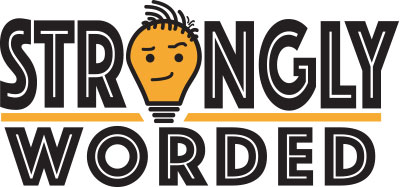When our kids were young, my wife and I discussed what might happen if we picked a couple things to casually – but consistently – teach them improperly in order to mess with them. Nothing major, mind you, just something small, obvious and deeply engrained. We thought, for instance, we could flip the words for squirrel and chipmunk and then sit back and watch what happened when they used them improperly out in the world.
So, aside from a nice, holiday demonstration of the messed-up sense of humor at work in our house, why do I bring this up? I was actually reminded of it while reading a book called “The Coddling of the American Mind” by Greg Lukianoff and Jonathan Haight. In the book, the authors argue today’s American students consistently get taught what they call the “Three Great Untruths.”
Lukianoff and Haight’s “Three Great Untruths”
- The Untruth of Fragility… that which doesn’t kill you makes you weaker.
- The Untruth of Emotional Reasoning… always trust your feelings.
- The Untruth of Us vs. Them… life is a battle between good people and evil people.
The authors didn’t pick these haphazardly. To be considered a great untruth, each had to clear three specific hurdles. First, each idea contradicts ancient wisdom, widely found in the literature of diverse cultures. Second, each contradicts modern psychological research on the well-being of individuals. Third, each is damaging to the individuals and groups who embrace it.
Lukianoff and Haight go in-depth with explanations, examples and probable causes for the untruths and I highly recommend the book. That said, it specifically interested from a perspective of what the widespread teaching of the “Great Untruths” is doing to our collective thinking and our discourse.
Untruth Rears its Ugly Head
The untruth of fragility puts ideas that compete with your own beliefs into a category requiring trigger warnings and safe spaces. These ideas are so dangerous, they are frequently shouted down on campuses and are even occasionally met with violence. This doesn’t exactly create a great environment for productive discussions about tough topics.
The untruth of emotional reasoning teaches us to view our feeling as true and inviolable. It strikes me as possibly the most damaging of the three untruths. Entire philosophies from Buddhism to Stoicism and now cognitive behavioral therapy are dedicated to teaching us that clear thinking and sound decision-making depend on us recognizing our emotions as a single, frequently flawed input to be considered and often deeply discounted. When we instead do the opposite, facts and reasoning are powerless to work their way into high-stakes discussions and decisions.
The untruth of us vs. them constantly makes its presence felt in today’s American politics. The moment you decide your opponent holds their beliefs because they’re evil, you close the door on any chance of understanding them and their thinking. Good, smart people can (and frequently do) see different paths to similar goals. Imagining anyone who doesn’t immediately agree with your ideas must be a bad person stops discourse, learning and solution identification in their tracks.
My wife and I decided pretty quickly that – while definitely entertaining to consider – flipping the true names of squirrels and chipmunks could really mess with a kid. The problem is, as a society, we’ve unwittingly taught our kids much more damaging flipped life truths. We all seem to agree our world faces some big issues… it would seem to follow naturally we would want to raise kids to be adept at facing tough challenges. Reality stubbornly insists on asserting itself regardless of what we tell our kids about it. The best we can do for them (and us) is to get them ready for it.

